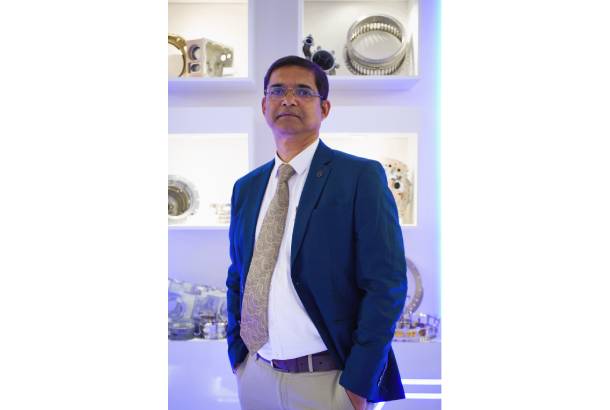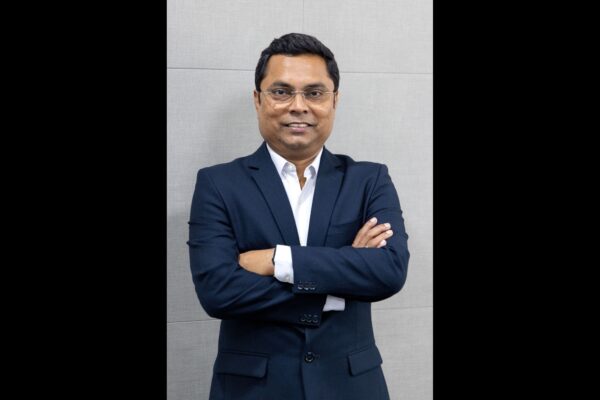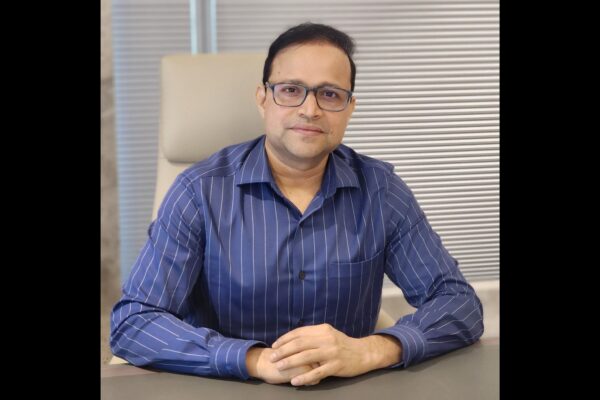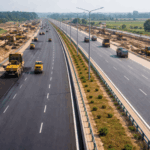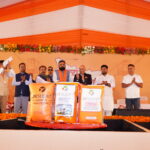We are actively progressing towards build-to-spec capabilities, says Anjan Ghosal, Associate VP and Business Head, Titan Engineering & Automation
From watchmaking to a global player in automation and precision manufacturing. What drove this transformation and expansion into aerospace, defense, and semiconductors?
The journey has indeed been fascinating. It all began in the early 1990s within our watchmaking company. At the time, our in-house maintenance team started building custom automation machines to support our own watch production. These early experiments turned out to be quite successful, and by 2004, this initiative evolved into a separate machine-building division. As these engineers honed their skills, they began crafting automation solutions for a variety of industries. If I remember correctly, our very first automation solution was delivered to a customer named Delphi. Since watchmaking inherently demands an extraordinary level of precision — we operate in microns — we started to think: why not leverage this expertise beyond horology? That thought sparked our exploration into external precision engineering. Our first step in this direction was contributing components to ISRO. Soon after, we had an opportunity to collaborate with an aerospace firm named Hamilton Sundstrand, which later became part of United Technologies, and eventually merged into Raytheon Technologies. This marked the beginning of our journey in aerospace manufacturing — starting with precision-turned components for aviation applications.
As we grew, so did the complexity of the parts we could manufacture. We invested in advanced machinery and special processes, transforming ourselves into a full-fledged precision component manufacturer for global aerospace companies. Then came the Covid-19 pandemic. With air travel plummeting and the aerospace sector taking a severe hit, we realized the need to diversify and de-risk our business. That’s when we began exploring the semiconductor industry — specifically, the wafer fabrication equipment (WFE) segment. For context, semiconductor chips, which power everything from smartphones to data centers, are made from silicon wafers. These wafers go through complex processes like deposition and etching to form the intricate circuits that drive modern electronics. The equipment used for these processes is known as wafer fab equipment — and our capabilities in precision manufacturing made us a natural fit to produce components for this highly demanding industry. So, from humble beginnings in watchmaking, we’ve evolved into a global precision engineering powerhouse — serving aerospace, defense, and now the semiconductor sectors, with critical components for aircraft engines, landing systems, thermal management, and wafer fab equipment.
What are the key strategies TEAL is focusing on to achieve a growth goal of 20-25% for this fiscal year?
We're approaching this goal through a combination of domestic and global strategies. On the automation front, we see a huge opportunity in India as the country builds out its own manufacturing ecosystem in sectors like electronics, EVs, semiconductors, solar, and lithium-ion batteries. These industries require sophisticated automation equipment most of which is currently imported and we’re positioning ourselves to be a local alternative with strong engineering capabilities. At the same time, we're expanding globally. We've already established a presence in Europe and North America, including a subsidiary in the US and we’re now investing further in these markets and exploring opportunities in Mexico, Brazil and SEA (South East Asia). The global push for local manufacturing is working in our favor, especially in automation where we see strong demand for high-efficiency production lines. In our precision manufacturing business particularly aerospace we’re working closely with major OEMs across the globe. There’s growing demand for components in aircraft engines, landing gear, actuation systems, and thermal management. We're increasing our content share per platform and investing in capacity to meet that demand, with a strong order book to back it up. And finally, semiconductor sector is another key pillar. We work with one of the world’s largest North American wafer fab equipment manufacturers and are seeing steady demand growth, particularly driven by AI and high-performance computing (HPC). In line with customer specifications and commitments, we are investing to expand our capabilities in this space and become a long-term partner in the global semiconductor supply chain.
TEAL recently signed a long-term agreement with Liebherr-Aerospace Lindenberg GmbH to supply critical landing system components. What does this partnership mean for TEAL and India’s position in the global aerospace supply chain?
We’re proud to have recently signed a long-term, five-year contract with Liebherr-Aerospace Lindenberg GmbH — a major division of the German industrial group Liebherr, which operates across aerospace, transportation, and off-highway sectors. While we’ve had an existing working relationship with Liebherr, this agreement marks a significant deepening of our collaboration, specifically in the area of landing gear systems. For instance, if you’ve ever flown on an Airbus A220 aircraft, the landing gear responsible for your safe touchdown includes some highly complex and critical components — many of which are manufactured by us at TEAL. This contract is not only a testament to our precision manufacturing capabilities but also a strategic step forward in positioning TEAL as a trusted global supplier of high-value aerospace components. For India, this partnership reinforces the country’s growing role in the global aerospace supply chain. It aligns well with the vision of Atmanirbhar Bharat (self-reliant India), boosting local manufacturing and showcasing India’s ability to deliver at the highest standards of quality and complexity. Moreover, it opens up new opportunities for TEAL — both in expanding our scope within Liebherr’s diverse aerospace portfolio and in establishing credentials that could help us partner with other global landing gear manufacturers in the future.
Safran selecting TEAL to manufacture turbine parts for its LEAP engines is a significant milestone. Can you elaborate on this achievement and how it strengthens TEAL’s position in the defense and aerospace sectors?
Absolutely. Safran is one of our most strategic and valued partners — a global aerospace leader with diverse business lines spanning aircraft engines, avionics, and more. While we’ve previously collaborated with certain divisions within the Safran Group, this is the first time we’ve been entrusted to manufacture components for Safran Aircraft Engines — specifically for the LEAP engine program. This is a major milestone for us, as the LEAP engine powers some of the world’s most widely used aircraft, including the Airbus A320neo and the Boeing 737 MAX. The parts we’re manufacturing are for the hot section of the engine — the turbine — which is one of the most complex and high-performance areas within a turbofan engine. Producing components for this critical section requires an extremely high degree of precision, material expertise, and process control. This achievement significantly elevates TEAL’s standing in the global aerospace ecosystem. It strengthens our credentials as a reliable supplier of high-precision aero engine components, and reinforces one of our strategic goals: to expand our footprint in the aero engine segment, which is vital not only for commercial aviation but also for future defense applications. It’s a proud moment for us — one that showcases India's evolving capabilities in high-end aerospace manufacturing and positions TEAL for even greater contributions to global engine programs in the years to come.
TEAL has been a leader in driving modular assembly innovations for the EV and semiconductor industries. What role do automation solutions play in shaping the future of these industries?
We believe automation solutions, especially modular assembly systems are pivotal in shaping the future of the EV and semiconductor industries. Our modular turnkey machines are designed like Lego blocks: each unit performs a specific operation and can be easily swapped, upgraded, or reconfigured based on evolving production needs. This modularity empowers OEMs and Tier 1 suppliers to scale their manufacturing operations efficiently and adopt new technologies with minimal disruption to existing layouts and infrastructure. The ability to rapidly adapt to market demands, introduce innovations, and maintain operational continuity is a true game-changer for our customers, giving them a significant competitive edge in these fast-evolving industries.
In the high-precision engineering sector, what are some of the biggest challenges TEAL faces, and how is the company positioning itself to address these?
In the high-precision engineering sector — particularly across aerospace, defense, and semiconductors — we face a number of critical challenges, many of which are unique to the complexity and precision these industries demand.
The first and most pressing challenge is the shortage of skilled talent. Operating high-precision CNC machines, especially in a batch production environment, requires deep technical expertise and a strong understanding of GD&T (Geometric Dimensioning and Tolerancing). These aren’t skills you typically find in abundance, particularly in India’s current talent landscape. Surprisingly, we’ve found that finding trained CNC machine operators is more difficult than anticipated — which is why we’ve decided to build this capability in-house. We’ve launched a structured program to recruit fresh graduates and skill them over a period of time. Through a dedicated curriculum and hands-on training, we prepare them to operate complex machines and deliver the precision our components demand.
Second, the availability of aerospace-grade raw materials within India is limited. While there has been progress with a few domestic manufacturers recently getting certified, the majority of aerospace materials — including specialty fasteners and forgings — still have to be imported. This not only increases costs and lead times but also exposes us to global supply chain risks.
Third, there are still gaps in specialized aerospace processes. Although many industrial processes are available domestically, several critical aerospace-specific ones are still missing or not up to global standards. In many cases, the raw materials or chemicals needed for these processes are also not produced locally, which hampers consistency and scalability.
In the semiconductor space — particularly in the wafer fab equipment (WFE) segment — the challenges are even more pronounced. We’re proud to be among the first in India to enter this segment, but it comes with its own set of hurdles. There is a significant lack of availability of cleanroom-compatible consumables, critical raw materials, and specialized components like precision chambers. Since many of these items are not manufactured domestically, we currently rely heavily on imports.
At TEAL, we’re actively working to address these challenges. Our strategy includes investing in skill development, building internal training academies, strengthening supplier partnerships, and exploring local sourcing opportunities wherever feasible. We’re also deeply engaged in supporting India’s broader goal of becoming self-reliant in high-tech manufacturing. Ultimately, we aim to not just meet global standards — but to set new ones from India.
Given India’s growing influence in global aerospace and defense supply chains, what opportunities do you see for Indian companies like TEAL in these industries over the next 5–10 years?
India is in a very strategic position right now, thanks to global supply chain realignments, the China+1 strategy, and increasing geopolitical shifts. For companies like TEAL, this opens up tremendous opportunities, especially in aerospace and semiconductors. In aerospace, the demand outlook is exceptionally strong. Over the next 30–40 years, over 50,000 aircraft will be needed globally, creating significant demand for components — especially engines, where backlogs are already in the range of 15,000+. With supply chain constraints in Europe and a proven track record of delivery, Indian precision manufacturers like TEAL are increasingly being seen as reliable alternatives. We’re already seeing this in our growing order book, and it’s prompting us to expand capacity, including new manufacturing facilities. In semiconductors, while there’s a short-term slowdown, the long-term market is on track to reach $1 trillion by 2030 — driven by AI and high-performance computing. This will drive sustained demand for wafer fab equipment and the high-precision components we manufacture. In short, both sectors present strong, long-term growth opportunities, and TEAL is well-positioned to scale and lead from the front.
Looking ahead, how do you envision TEAL’s role in the global supply chain, especially in sectors like aerospace, defense, and semiconductors?
We see TEAL playing a critical and increasingly strategic role in the global supply chain for aerospace, defense, and semiconductors. Over the last two decades, we’ve earned a reputation for being a reliable, high-quality supplier — a fact underscored by our recent Platinum Award from the Raytheon Group, making us the first in Asia to receive this recognition. It’s a strong validation of our consistency, technical capability, and process excellence. Going forward, our vision is to move up the value chain. From our current strength in build-to-print precision components, we are actively progressing towards build-to-spec capabilities — including the delivery of integrated assemblies and sub-assemblies. With deep domain knowledge and proven delivery, TEAL is poised to become a vital and trusted partner in the global supply ecosystem for high-precision, mission-critical sectors.

